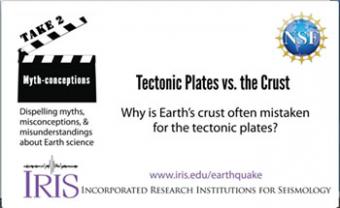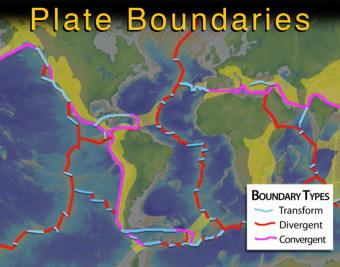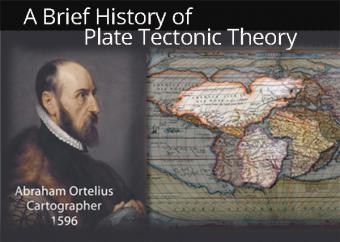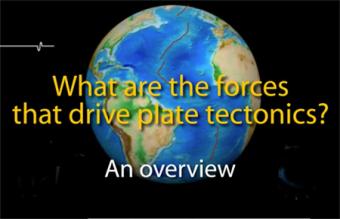
What is the difference between the crust and the tectonic plate?
People often use the terms crust and tectonic plates interchangeably. It can be confusing because they are paired, and yet they are distinct from each other.
Earth’s outermost layers can be defined using two separate properties: Mechanical or Compositional.
CLOSED CAPTIONING: A .srt file is included with the download. Use an appropriate media player to utilize captioning.

This intermediate-level animation describes what the tectonic (lithospheric) plates are and how they interact. It differentiates between continental and oceanic plates, and between the three major types of boundaries.

The "Father of Plate Tectonics", Alfred Wegener wasn't recognized when he proposed "Continental Drift" in 1912. It would take another 50 years to be accepted. And yet, in the year 1596 the process was already considered by cartographer Abraham Ortelius. This animation gives an overview of the most-recognized proponents (and opponents) of Plate Tectonics Theory up into the 1960's.

Lithospheric plates are part of a planetary scale thermal convection system. The energy source for plate tectonics is Earth’s internal heat while the forces moving the plates are the “ridge push” and “slab pull” gravity forces.